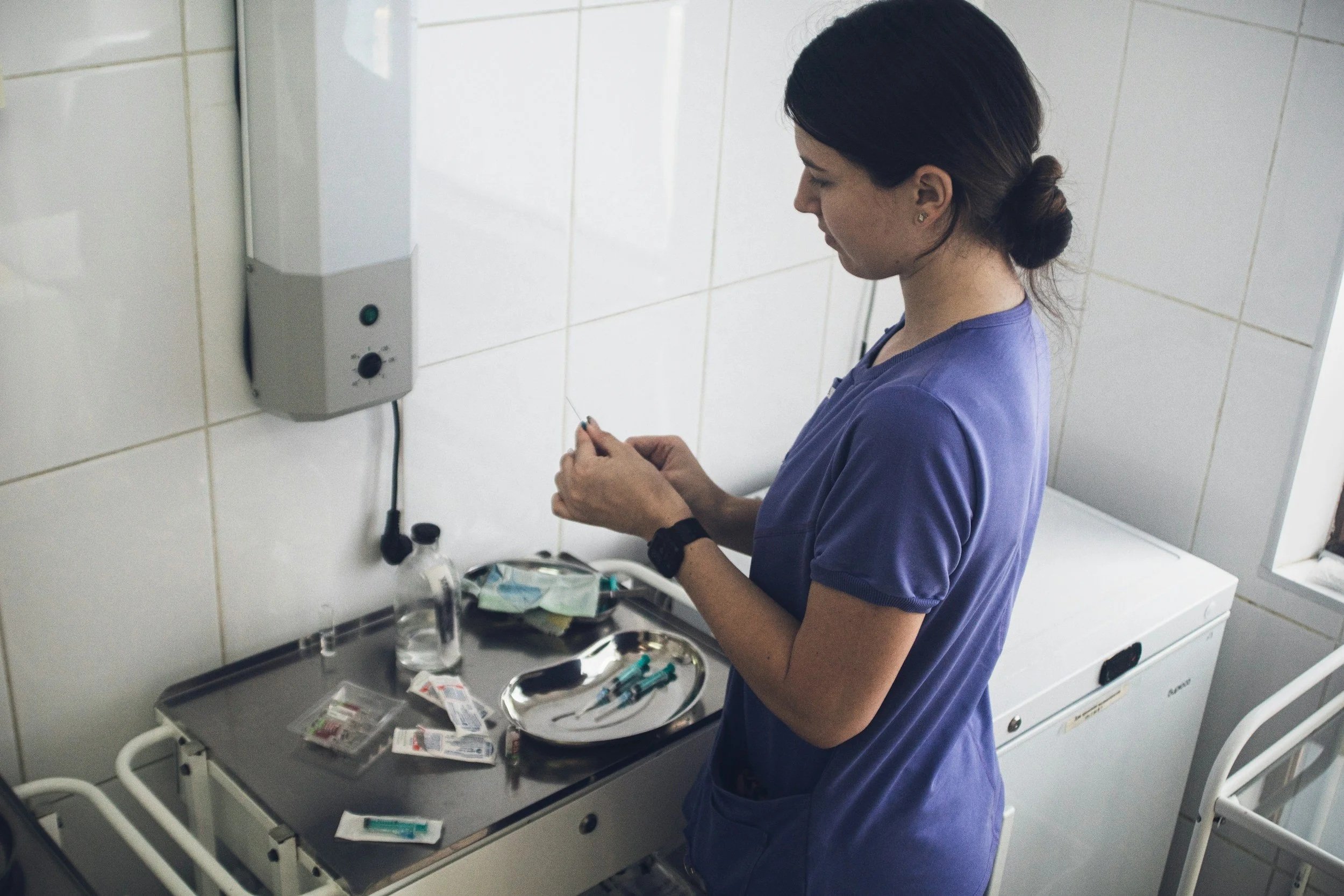Egg freezing is an empowering option for women who want to preserve their fertility for the future. Spain has become a leading destination for fertility preservation due to its high medical standards, competitive pricing, and patient-centered approach. But if you’re not a resident, what should you know before egg freezing abroad in Spain?
Choosing the Right Clinic
The first and most important step is selecting a fertility clinic that provides full support for international patients and makes the process smooth and well organized. When finding a clinic overseas, consider asking them about:
Completing your first consultations online so you can get expert guidance before travelling
Assistance with pre-treatment testing in your home country
Pricing – including ultrasounds, years of egg storage, discount on further IVF, egg quality assessment, and any other necessary expenses
Your care team – who will be providing care and support to you during the process? Is there a patient care coordinator assigned to you? Are translation services available, if necessary?
Check Your Ovarian Reserve and Hormones Before You Travel
Before making any decisions, assess your ovarian reserve to determine whether egg freezing is the right option for you. This can be checked through:
Antral follicles count via ultrasound
Hormone tests for overall ovarian function
If your results indicate a low ovarian reserve, your fertility specialist may suggest multiple egg freezing cycles for better success. The younger the patient, the better the egg quality typically is. For women over 35, multiple cycles might be recommended to optimize a higher chance of having a baby with your frozen eggs.
Legal Aspects
Elective egg freezing is legal and accessible to all women in Spain, regardless of marital status or nationality. Women, independently of their nationality, can store their eggs for as long as needed. If you choose to fertilize your eggs with donor sperm, your donor will remain strictly anonymous. In order to transfer eggs outside of Spain, the final approval depends on the Spanish government, a process that can take up to several weeks. If pursuing IVF in the future, you may need to return back to Spain for the IVF process.
Costs of Egg Freezing in Spain
Spain is more affordable than the UK or US, while maintaining the highest standards of fertility treatment. The cost of an egg freezing cycle is usually under $3,000 and, depending on the clinics, might include more services than the treatment itself. Medication costs typically are an additional $1000-1600. Always request comprehensive pricing information when contacting potential clinics.
Completing your full egg freezing cycle in Spain may be cheaper, depending on travel costs. Why?
Medication is significantly cheaper in Spain
No need to redo prescriptions in your home country.
All monitoring is either included in your treatment price or at a very low price.
Length of Stay
Plan to stay for the entire stimulation phase and retrieval. For non-European residents, it’s best to stay in Spain for the duration of your ovarian stimulation and egg retrieval, plus a day or two after your retrieval. The length of an egg freezing cycle can fluctuate, so ensuring flexible and refundable travel plans is recommended.
To ensure you have enough time to recover before your travel home, plan to leave a few buffer days before and after your treatment cycle.
If you’re considering egg freezing in Spain, start by researching and comparing clinics, and schedule a virtual consultation to meet your doctor and team. It’s important to check your ovarian reserve before committing to an egg freezing cycle, and make sure to plan your stay alongside your clinic staff to ensure a seamless experience.

Dr. Elena Santiago is a renowned specialist in gynecology at Vida Fertility Madrid. She graduated in Medicine and Surgery and completed her residency in Gynecology and Obstetrics. Since then, she has specialized in infertility, assisted reproduction, gynecological and obstetric ultrasound scans, among others. Throughout her career she has combined her healthcare work with an important informative activity, participating in numerous communications at national and international congresses and in publications on the specialty.
Learn more about Vida Fertility Madrid’s egg freezing practice on Freeze.
Answered by Dr. Roy Handelsman from HRC Fertility. Understand how ovarian cysts and ovarian surgery may impact the egg freezing process.
Answered by Dr. Rashmi Kudesia from CCRM Fertility Houston. Here’s a checklist for before, during, and after your egg freezing consultation, including 11 questions you should ask the doctor.
Answered by Valerie Shafran, MSN, FNP-C from Extend Fertility. Discover why fertility experts urge women to stop taking GLP-1 agonists before an egg freezing cycle.
Answered by Dr. Nidhee Sachdev from South Coast Fertility Specialists. Explore what AMH tells us about a woman’s ovarian reserve or how many eggs she has left.
Answered by Dr. Hade from Generation Next Fertility. Understand how egg freezing does not cause long-term weight gain yet there is a chance of transient bloating.
Answered by Rijon Charne, JD from Sunray Fertility. Explore what a reproductive estate plan entails and the situations where having one can make a big difference.
Answered by Rijon Charne, JD from Sunray Fertility. Learn more about the importance of clinic disposition forms, including what they do and don’t cover.
Answered by Rijon Charne, JD from Sunray Fertility. Discover the legal nuances that can shape your options when freezing eggs or embryos.
Answered by Dr. Joshua Klein from Extend Fertility. Learn how birth control relates to egg freezing and if you will need to stop your hormonal birth control before starting the procedure.
Answered by Dr. Jesse Hade from Generation Next Fertility. Discover the important factors that affect chances of egg freezing success in your late thirties.
Answered by Sidonia Buchtova, PA-C, C-RHI from Refresh Psychiatry. Understand if you can stay on an SSRI or SNRI when freezing your eggs.
Answered by Sidonia Buchtova, PA-C, C-RHI from Refresh Psychiatry. Discover tips to help support your mental well-being during preparation, throughout the cycle, and after your egg retrieval, especially if you have a history of anxiety.
Answered by Dr. Katharina Spies from Vida Fertility. Learn about who should consider supplements before and during fertility preservation, and how supplements could support your egg freezing cycle.
Answered by Dr. Serin Seckin from Generation Next Fertility. Understand the key differences to help you make an informed decision that aligns with your personal and reproductive goals.
Answered by Dr. Ido Feferkorn from the Reproductive Medicine Group. Learn how Polycystic Ovarian Syndrome (PCOS) may affect the egg freezing process and outcomes of fertility preservation.
Answered by Dr. Meera Shah from Nova IVF. Understand the potential risks of egg freezing to help you evaluate if it is right for you.
Answered by Dr. Hade from Generation Next Fertility. Learn from start to finish the entire process of what happens on the final day of an egg freezing cycle.
Answered by Dr. Sahar M. Stephens from Northern California Fertility Medical Center. Understand the probability of pregnancy based on the number of eggs frozen and the age at which you freeze.
Answered by Dr. Alison Peck from HRC Fertility. Discover which medications are commonly used for ovarian stimulation during an egg freezing cycle.
Answered by Dr. Kathryn Snow from Piedmont Reproductive Endocrinology Group (PREG). Understand the side effects that you may experience when freezing your eggs.
Answered by Lia Schiller, MSN, AGNP-BC from Extend Fertility. Learn why IUDs can stay in place throughout the egg freezing process.
Answered by Dr. Woo from HRC Fertility. Learn how some medications need to be stopped for an egg freezing cycle while some medications can be continued.
Answered by Dr. Dan Nayot from The Fertility Partners. Learn how artificial intelligence is providing women with more information than ever before about their eggs.
Answered by Dr. Joshua Klein from Extend Fertility. Egg freezing doesn’t impact your chance of getting pregnant naturally, because egg freezing makes use of eggs that would otherwise have been lost.
Answered by Dr. Dan Nayot from The Fertility Partners. Understand the distinction between egg quantity and quality, and explore how AI is transforming egg quality analysis.
Answered by Dr. David E. Tourgeman from HRC Fertility. Understand what options exist for what to do with your frozen eggs if you decide not to use them for IVF.
Answered by Dr. Armando Hernandez-Rey from Conceptions Florida. Learn about minimal stimulation egg freezing cycles and how they can decrease the risk of ovarian hyperstimulation syndrome.
Answered by Dr. Ido Feferkorn from the Reproductive Medicine Group. Find out how egg freezing medications work and how protocols can be adjusted if you can’t take estrogen.
Answered by Dr. Ido Feferkorn from Reproductive Medicine Group. Learn how egg freezing fits into the menstrual cycle and how timing can be customized.
Answered by Dr. Elena Santiago from Vida Fertility. Understand the ins and outs of egg freezing in Spain as a non-resident, including timing, costs, and more.






























